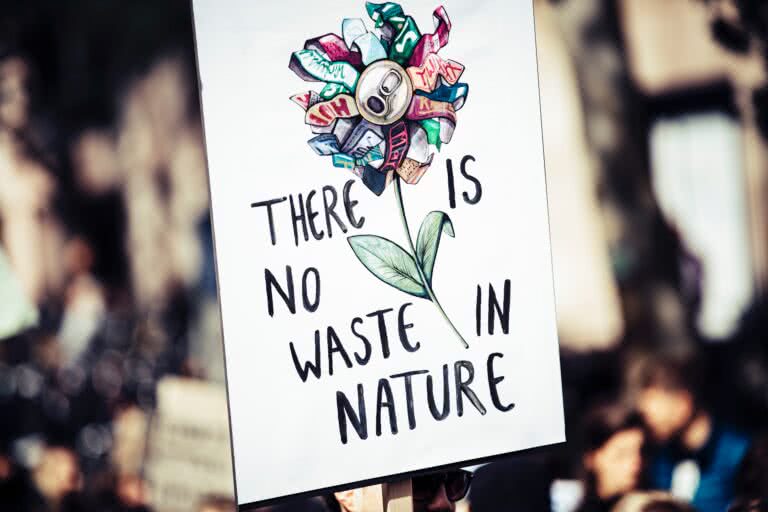There’s plenty that planners and organisers can do to reduce their next event’s environmental impact.
Labelled the ‘Greta Thunberg effect’ by the media, the 16-year-old schoolgirl from Sweden has raised awareness of climate change and inspired individuals and organisations around the world to offset their carbon footprints by investing in carbon-reducing projects.
A desire to support the future of our planet has filtered through to the events industry, too. After all, as consumers increasingly choose to buy from brands they believe are committed to supporting environment and 49% of millennials site climate change and the destruction of nature as their number-one concern, finding ways to host green events makes good commercial sense. So, whether it’s a music festival or a corporate workshop, what can you do to make a difference?
Assess your event’s impact
Heating or cooling a venue, welcoming delegates who have travelled by air, running audio-visual equipment. Events can generate a large amount of greenhouse gas emissions, leaving behind a big carbon footprint. By being realistic about the potential carbon impact of your event, you can begin to identify areas where you can make reductions. In addition, you can look for ways to offset your impact by introducing a few green initiatives. Online footprint calculators can help with this, as can the UK’s PAS 2060 that outlines the key steps involved in carrying out a carbon audit.
Learn from others
Many performers are leading the way when it comes to reducing the carbon footprint of music events. Radiohead travel by buses that run on biofuel and encourage their fans to take public transportation to their shows, while Pink eliminated 14,000 single-use plastic bottles from her most recent tour by issuing branded refillable water bottles and setting up water stations at each concert. Venues and festivals are following suit – the most recent Glastonbury was plastic-free, while London-based Oval Space has introduced biodegradable cups and Mercado Metropolitano is home to a zero-waste brewery.
The corporate world is also instigating change when it comes to hosting more environmentally friendly events. Since overhauling their conference planning processes in 2008, Microsoft have composted more than 675 tonnes of food that would otherwise have been thrown away. In addition, many companies have added tree planting to their CSR activities in a bid to offset their carbon footprint.
Look at examples of what event organisers are doing to reduce and offset their carbon emissions, and focus on the areas below to start making positive changes.
Can you swap to a virtual venue?
In today’s hyper-connected world, you don’t always need a physical location in order to host a successful event. Instead of booking a venue that people have to travel to, you could launch a product online, live stream a keynote speech or host a virtual conference, training session or webinar and ask attendees to join from their workplace or home office. Virtual events can reach a much broader audience, without the carbon footprint their physical attendance might have.
However, if a virtual event is not an option, some changes to the event planning process – like where it’s held – can help reduce its impact. Look for conference centres, venues and hotels that are committed to reducing the amount of water they use or run on renewable energy. Even the city you choose can impact an event’s carbon footprint because of the carbon intensity of the local power grid or the availability of public transport.
On a smaller scale, switching to LED lighting and lower power efficiency systems will help minimise your footprint so, where possible, talk to the venue or the audio-visual team you are working with to see how you can create a more sustainable event by using less energy. And, if you reject a potential venue in favour of a space that has better green credentials, it’s worth feeding this back to them – it could inspire them to change their approach.
Empower participants to make a difference
If you are committed to reducing your event’s carbon emissions, you need to make sure everyone is committed to the cause. Talk about what you are doing to make a difference on your website and social media channels – it will raise awareness and educate attendees, and show that your organisation cares about the environment.
Travelling to and from an event is one of the biggest contributors to an event’s carbon footprint. With this in mind, if attendees are going to need to stay overnight, look for venues that provide an event space as well as accommodation. Or reduce the number of taxis required by organising a shuttle service from a few pick-up points.
Carbon-offsetting programmes can give attendees the option to reduce their impact of attending an event (this could be a donation that’s included in the cost of the ticket). In addition, offering an incentive – such as reduced tickets or free food tokens – may encourage attendees to use public transport to get to an event.
Going paperless and plastic-free is a great start, especially because it’s incredibly easy to issue and keep track of digital tickets. Armed with on online event page and a database of email addresses, you can communicate everything an attendee needs to know with just a few clicks. This means last-minute adjustments are easy and you won’t incur the cost of reprinting hundreds of programmes because the speaker schedule has changed. In addition, everyone carries a phone with them at all times, making an e-ticket a convenient option.
Recycle, reuse – and reduce costs
Another way to reduce your event’s carbon footprint is to look at elements of your supply chain. Not only can organisers support the environment by recycling, reusing and greening their facilities, they can also reduce some costs and boost their event’s reputation.
Reducing the amount of waste your event produces is really important, so start by making it easy for attendees to place their rubbish in the correct recycling bins – for plastic, paper, aluminium cans and so on. Major UK events such as the Hay Festival and Ludlow Food Festival have made their commitment to reducing their landfill waste clear, so follow their example and place bins in several locations and ensure they are labelled and easy to find via signposts throughout the event space.
When it comes to catering your event, check your suppliers use compostable or recyclable packaging where possible. If you are committed to eliminating single-use plastic, there’s no point working with a supplier who isn’t – so find out if they use biodegradable cups, plates and utensils before engaging their services. As part of our collaboration with Olio, we are actively helping event organisers manage food waste at their events and our Directory of Sustainable Organisations and Suppliers makes it even easier to find green partners who are committed to the same goals as you.
It’s just as important to think about your environmental impact after an event, too. Especially outdoor events where litter can quickly spread to other areas. When researching venues, it’s essential to ask if they recycle their waste and, if they don’t have a system in place, you need start making a plan. Hire staff to use volunteers to collect items that are recyclable and clear away any rubbish and dispose of it responsibly. If lost property items – clothes, tents, sleeping bags – aren’t claimed in a given time period, look into putting a donation together for your local charity.
From arranging an environmentally friendly conference to introducing a few sustainable initiatives to your next festival or music event, the Eventbrite blog is packed with ideas for how to plan a green event.





